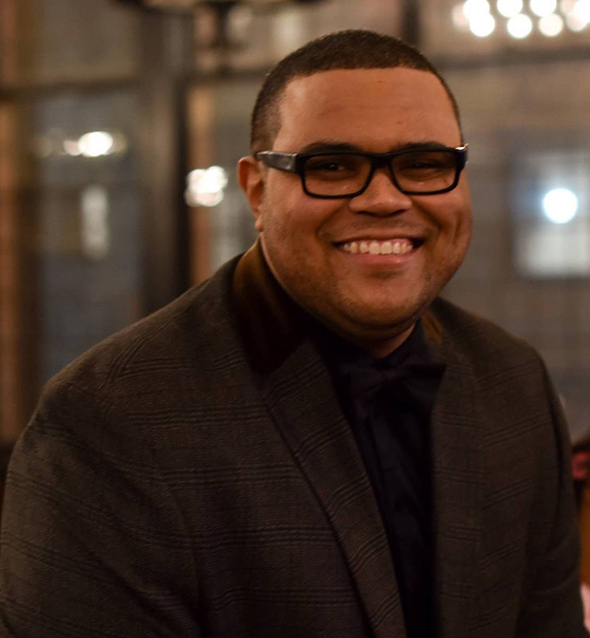Demanding the Tools for Social Justice: Award-winning TC doctoral student Kenneth Graves makes the case for bridging the digital divide

Doctoral student Kenneth Graves is a self-proclaimed geek – in his own words, “that guy who stays up till 3 a.m. ordering the new iPhone.”
But he’s also a teacher, a lover of social justice and a statistics wizard, equally adept at discussing the aesthetics of Toni Morrison or the intricacies of Latent Class Analysis. It’s precisely those qualities that have gotten him some national attention – and some money.
Graves was recently awarded a $20,000 American Educational Research Association (AERA) Dissertation Grant for his dissertation, a statistical study of different types of teachers and school leaders who use technology. The award will enable him to attend a conference in Washington, D.C. and present his research at AERA’s annual conference, which will be held this spring in San Antonio, Texas. His research was inspired by a pilot study in which he found that some teachers use technology to drill students with memorization – and that those who do so tend to work in poorer districts.
In a pilot study, Graves found that teachers who use technology to drill students with rote memorization tend to work in poorer districts.
“Teachers and students in historically disadvantaged schools can’t capitalize on the benefits of technology because of a lack of opportunity,” Graves says. “Having said that, are we actually making any progress with technology in schools? Or is it the same story, different year? I argue that leaders seem to be stuck, and my thesis aims to examine technology use from a different perspective.”
Graves currently works as a Technical Integrator and teacher at the Fieldston School in the Bronx, where his main job is to help teachers integrate technology in their classes. He also teaches in the Ethics department. “Fieldston is an independent school that can afford the best uses of technology,” he says. “But that’s not the case at many public schools.”
“Teachers and students in historically disadvantaged schools don’t have the chance to capitalize on the benefits of technology because of a lack of opportunity.”
Growing up in Upper Marlboro, Maryland, Graves was a technophile who liked to take computers apart with his father and reassemble them. However, the all-black parochial school he attended offered few technology courses, so he pursued his interest in literature, mentored by an English teacher who introduced him to the works of great writers like Toni Morrison.
He later studied English and education at the University of Richmond, graduating as one of the only black males in his class with an education degree. He found a job teaching in a mostly African-American public high school in Richmond. The district provided a laptop for every student, but the school had little tech support for teachers. His students, moreover, were surprised to have a technology-loving teacher who “looked like them,” he says. His next move: Coming to Teachers College to study the use of technology in schools.
Ultimately Graves hopes his dissertation – and the grant that supports it – will help teachers and school leaders understand how to use technology appropriately and equitably.
“I want all students, especially students of color, to confidently embrace technology and see it as a possible career,” Graves says. “I didn’t get that chance to in high school, so I’ve made it my mission in life, as a school leader and researcher, to work to overcome technological inequality in our schools and bridge the digital divide.” – Robert Florida
Published Friday, Oct 7, 2016